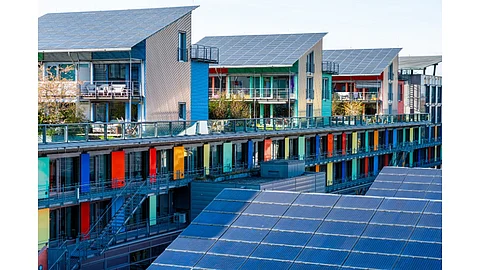

Bundestag has passed amendments to some of Germany’s energy laws, including the EnWG and EEG
The changes entail increased use of digitalization and storage while reducing bureaucracy to boost renewable energy generation
The amendments now await clearance from Bundesrat, following which these will be enforced from March 1, 2025
Just before Germany votes for its next federal government, the country’s Parliament or Bundestag has passed several amendments to the country’s energy policies. These include the Energiewirtschaftsgesetz or the Energy Industry Act (EnWG) as well as the Renewable Energy Sources Act (EEG), which has been a major driver of renewable energy growth in the country, especially for solar PV.
Changes for the solar industry are encompassed in the so-called Solar Peak Act. The idea, according to the Bundestag, is to reduce bureaucracy and ensure renewable energy can provide system security by adopting digitalization.
At the end of December 2024, Germany had installed close to 100 GW of cumulative solar PV capacity, adding over 16 GW within 2024 (see Germany Installed 1.44 GW New Solar PV Capacity In December 2024).
Residential solar rooftop installer 1KOMMA5° says that even as the solar PV market is thriving, the grid is consistently being challenged with the huge volume of electricity generated by the PV systems. The new Solar Peak Act will ‘fundamentally change the way’ solar power is handled.
“The aim is to avoid grid overloads, accelerate the use of smart meters and make the market for solar power more flexible. Instead of uncontrolled feeding in, the law is intended to encourage people to feed in or use electricity in a way that benefits the grid,” explains 1KOMMA5°.
Following are some of the major changes that these amendments introduce for all new systems that are commissioned after the enforcement of the law:
Solar PV system operators receive EEG compensation for the electricity they feed into the state grid at times of negative electricity prices. This will stop with the new law. It is aimed at incentivizing the use of storage as well as self-consumption. To offset the lost revenue, the regulation offers to extend the 20-year compensation period. Local solar association BSW-Solar says operators of existing solar power systems can voluntarily switch to the new scheme to receive an additional 0.6 ct/kWh in compensation.
The focus is on digitalization as the amendments make it mandatory for PV systems above 7 kW to integrate intelligent measuring systems (iMSys) or smart meters and control technology to manage power peaks. Systems below the 7 kW range and plug-in solar devices that do not feed electricity into the grid will be exempt from this requirement.
Operators of solar systems under 100 kW capacity can now sell their electricity on the stock exchange, thus benefiting from simplified access to direct marketing.
The feed-in-power of new PV systems is limited to 60% if these are not equipped with iMSys. It applies to all PV systems with an output of less than 100 kW. The idea is to encourage onsite self-consumption and the addition of storage systems to prevent curtailment.
Solar systems installer Enpal says the new regulations could lower household income from the state feed-in-tariff by up to 30%, which makes it important for homeowners to opt for a complete PV solution with a smart meter and intelligent energy manager.
The Bundestag-approved amendments are now in the court of Bundesrat that must pass the law on February 14, 2025, following which the same will come into force on March 1, 2025.
